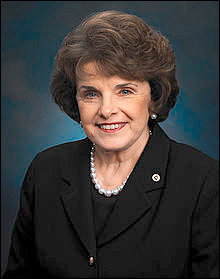By Jim Ellis
Nov. 17, 2020 — All four Georgia Senate runoff candidates are already hitting the airwaves with new messages that telegraph just where they want their campaigns to head in the final weeks of 2020 political overtime.
As you know, Sen. David Perdue (R) faces Democratic challenger Jon Ossoff for the in-cycle six-year term, and appointed Sen. Kelly Loeffler (R) opposes Rev. Raphael Warnock (D) in the special election to fill the final two years of resigned Sen. Johnny Isakson’s (R) final term. Loeffler was appointed when Isakson left office at the end of 2019 for health reasons. Both contests will be decided on Jan. 5.
The outcome will decide the Senate majority. If the Democrats sweep the two races, they will become the majority party because the new vice president, Kamala Harris, will break the 50-50 tie. If Republicans just win one of the two, they will maintain their current majority status, albeit smaller, at 51-49. Winning the pair means the GOP will have only lost a net of one seat in the 2020 election cycle as their majority would register 52-48.
Sen. Perdue set the tone of his runoff effort with a new ad (top) that highlights Senate Minority Leader Chuck Schumer (D-NY) saying, “when we (meaning the Democrats) take Georgia, we will change America.” The Perdue ad defines “the Schumer-Pelosi-Ossoff” change as “defund[ing] the police, voting rights for illegal immigrants, and making Washington, DC the 51st state.” The message then quotes Ossoff as saying, “change is coming to America.” The ad closes with the narrator saying, “believe them. Vote Perdue to stop them.”
(Jon Ossoff Ad)
Ossoff responds with an ad (above) solely devoted to COVID-19. The media consultants found virtually identical COVID related statements from President Trump and Sen. Perdue, and then runs their audio consecutively in an attempt to tie the two together. The ad closes with the narrator saying that “David Perdue ignored the medical experts, downplayed the crisis, and left us unprepared.”
The special election is taking a much different tone. Challenger Raphael Warnock, the Baptist minister who pastors the church over which Dr. Martin Luther King, Jr. and his father once presided, Ebenezer Baptist in Atlanta, re-visits Sen. Loeffler’s controversial COVID related stock transactions and creates an ad around this subject (below).
(Raphael Warnock Ad)
The script says Sen. Loeffler, “after receiving confidential briefings on Coronavirus immediately starts dumping stocks …making sale after sale and getting rid of $3.1 million before the market crashed.” The tagline ends with the narrator saying, “Kelly is for Kelly. Warnock is for us.”
The ad, of course, makes no mention of Sen. Loeffler’s transactions being investigated and cleared by the Securities and Exchange Commission, but it is more than probable that we will be hearing that part of the story in future Loeffler campaign communications.
Sen. Loeffler launched a hard-hitting new attack centered around her theme, “saving the Senate is about saving America.” The ad attacks Rev. Warnock for “calling police thugs and gangsters, host[ing] a rally for Communist dictator Fidel Castro, and prais[ing] Marxism in speeches and writings.” (below)
https://youtu.be/sUTe8yemoJM(Sen. Loeffler Ad)
With the campaign battle lines being drawn early in this two-month runoff campaign, we can expect this type of hard-hitting rhetoric to continue all the way to the Jan. 5 election as both sides attempt to motivate their base voters to return for the runoff.
The last time we saw a US Senate runoff in Georgia – Georgia and Maine are the only two states that require general election winners receive majority support – occurred in 2008 when Sen. Saxby Chambliss (R) was forced into a secondary vote. The circumstances were similar. Sen. Chambliss placed first in the general election but, like Sen. Perdue, finished just a few thousand votes under the 50 percent threshold (49.8 percent). This forced Chambliss and his opponent, Democrat Jim Martin who received 46.8 percent, into a Dec. 2 runoff election of that year.
Sen. Chambliss prevailed in the runoff with 57.4 percent of the vote. In that year, 3.752 million people voted in the general election with 2.138 million returned for the runoff election for a drop-off rate of 43 percent. In 2020, a total of 4,945,702 individuals cast a vote in the Perdue-Ossoff Senate race, while the figure was approximately 37,000 people lower for the special election, 4,907,872. While a drop-off from the 2020 general election is expected, political intensity suggests it will likely not be as high as we saw in the 2008 US Senate runoff campaign.



